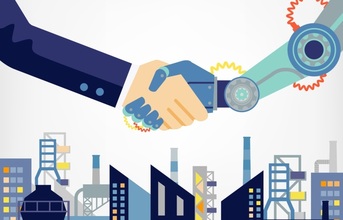
Dell Technologies commissioned the study to help companies navigate an uncertain world and prepare for the future. Today, digital disruption is ruthlessly redrawing industries. For the first time in modern history, global leaders can't predict how their industry will fare further down the line. According to Dell's Digital Transformation Index, 61% of APJ business leaders have experienced significant disruption to their industries as a result of digital technologies. And more than half of businesses believe there's a possibility their company will become obsolete within the next three to five years.
"We've been exposed to two extreme perspectives about machines and the future: the anxiety-driven issue of technological unemployment or the over optimistic view that technology will cure all our social and environmental ills," said Rachel Maguire, research director, Institute for the Future. "Instead we need to focus on what the new relationship between technology and people could look like and how we can prepare accordingly. If we engage in the hard work of empowering human-machine partnerships to succeed, their impact on society will enrich us all."
Other report highlights include:
- In 2030 humans' reliance on technology will evolve into a true partnership with humans, bringing skills such as creativity, passion and an entrepreneurial mindset. This will align with the machines' ability to bring speed, automation and efficiencies, and the resulting productivity will allow for new opportunities within industries and roles.
- By 2030 personalised, integrated artificial intelligence (AI) assistants will go well beyond what assistants can do now. They'll take care of us in predictive and automated ways.
- Technology won't necessarily replace workers, but the process of finding work will change. Work will cease to be a place but a series of tasks. Machine learning technologies will make individuals' skills and competencies searchable, and organizations will pursue the best talent for discrete tasks.
- An estimated 85 percent of jobs in 2030 haven't been invented yet. The pace of change will be so rapid that people will learn "in-the-moment" using new technologies such as augmented reality and virtual reality. The ability to gain new knowledge will be more valuable than the knowledge itself.
END


























